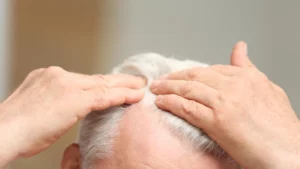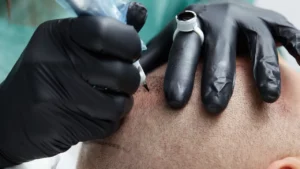Hair loss after hair transplant is not a cause for concern. It is a practical process that must be gone through in order to grow more natural and stronger hair. The transplanted hair falls out and new hair grows in its place. However, it is not a situation seen in everyone.
Experiencing hair loss after hair transplant has nothing to do with the hair transplant failure. It proceeds as a normal post-treatment period and is necessary to achieve the final result. It is a process called by different names: shock loss and hair shedding phase.
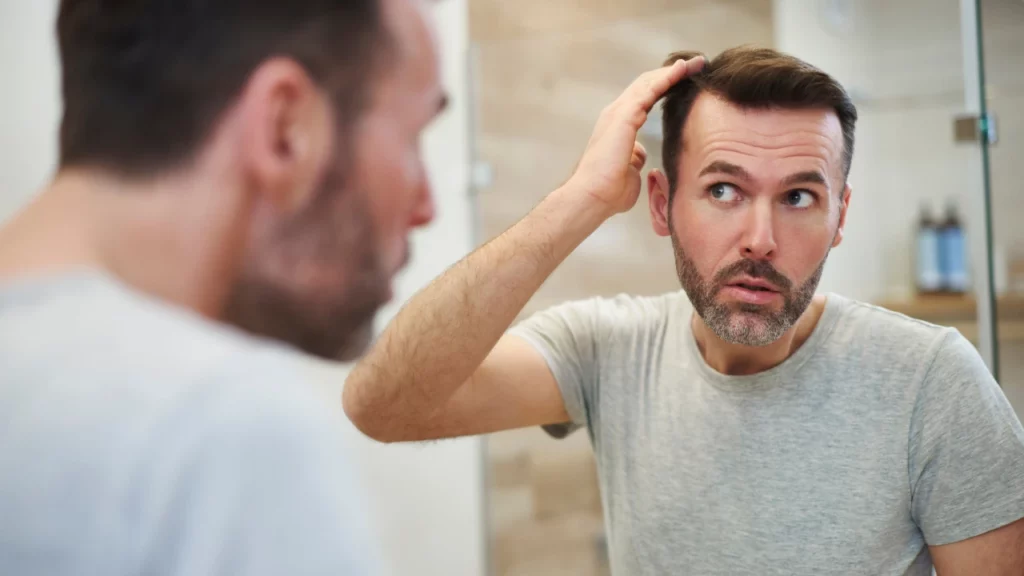
Hair Loss After Hair Transplant: Learn Basics
Hair loss after hair transplant is a normal situation. The patient should not be worried too much about it. It is a condition that generally occurs approximately 1-3 months after a hair transplant. In fact, it is a reaction of the body to the procedures performed on the scalp.
Hair loss after hair transplant may take longer for certain reasons. The doctor must inform the patient in the best way possible. Thus, the patient realizes that the hair transplant shedding phase is a normal process and does not have to deal with unnecessary stress.
Hair Loss After Hair Transplant: Causes
Hair loss after hair transplant is called “hair shedding” or “shock loss”. It is completely normal, but it is not clear when it will occur. It can be seen within 1-2 weeks after the surgery, or it may take up to 3 months depending on the person.
Hair transplant shedding occurs under all conditions, regardless of the method used: FUT, FUE or DHI. The transplanted hair falls out and the dermal papilla remain intact. The reason for hair loss is the temporary interruption of blood flow.
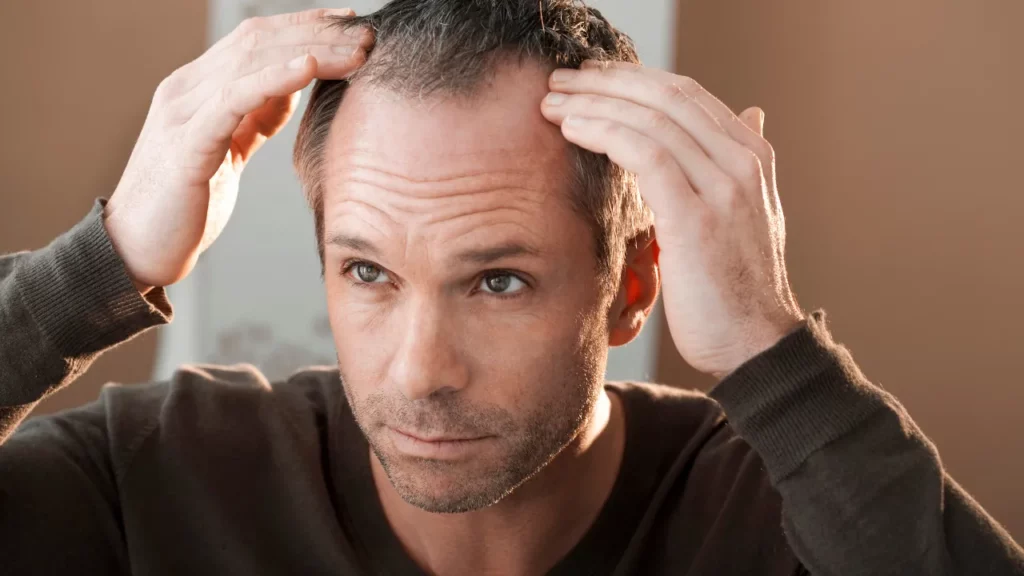
Hair Loss After Hair Transplant: Prevention
It is understandable that patients who experience shedding after hair transplant want to try to prevent the shedding. It is a part of the treatment called “shock loss” and there is no need for any prevention process. Only a little patience is required on the part of the patient.
The patient must follow all instructions provided by the doctor. Necessary steps should be taken regarding hair care. After the shock loss period, healthy hair begins to appear. The real abnormal situation is encountering with no shedding after hair transplant.
Hair Loss After Hair Transplant: Treatment
You may experience hair loss after a certain period of time has passed since the hair transplant shedding phase. If you do not follow the post-transplant care steps specified by the doctor, the treatment may fail and you may have to lose your transplanted hair early.
The hair transplant shedding period should not last too long. After your transplanted hair falls out, healthy ones grow in its place. If you experience hair loss after a while, you should get support from your doctor or a dermatologist as soon as possible.
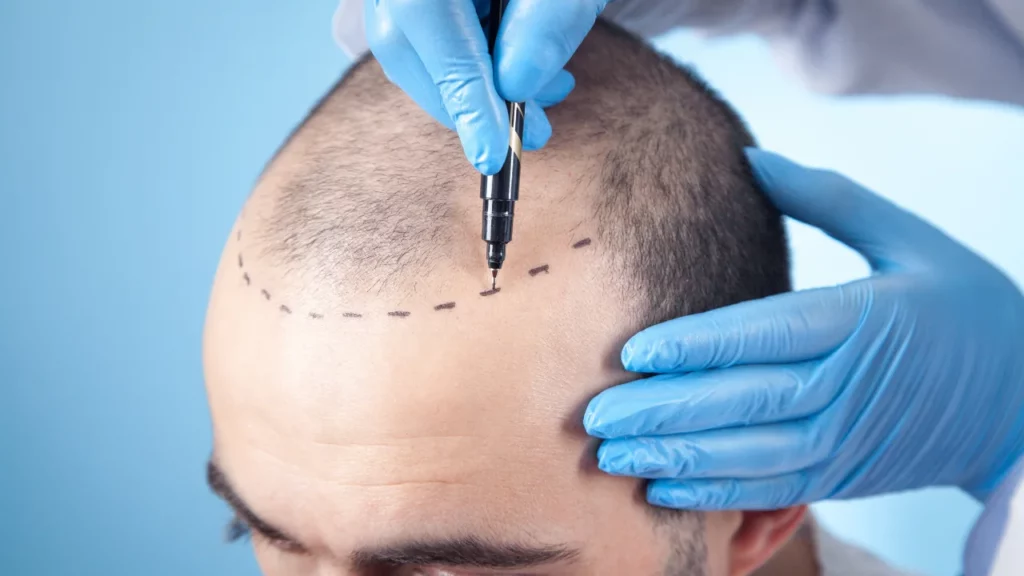
How Long Does Hair Transplant Last?
One of the most important questions in the minds of people who apply for hair transplant treatment is “How long does a hair transplant last?” It is difficult to give a clear answer. In general, hair transplanted hair under proper care conditions lasts for a long time.
How long the transplanted hair will last depends on the method used, the person’s health condition, post-treatment care and other factors. Hair loss after hair transplant may occur for a certain of time. Afterwards, the lost hair starts to grow again with healthy way.
Do Hair Transplants Last Forever?
“Does hair transplant last forever?” is one of the most asked questions. It is difficult to say that any hair transplant procedure will be permanent forever. Various details must be taken into account: from the health conditions of the person to the lifespan of the hair follicles.
- Hair follicles: All hair follicles transplanted to your scalp have a lifespan. After a time, hair production may slow down. Sometimes problems such as hair loss after hair transplant may occur. However, hair production continues for the rest of your life.
- Hair loss: Transplanted hair may remain on the head for a lifetime. Despite this, the hair surrounding the transplantation area falls out. If hair loss after hair transplant continues after the shedding period, you should consult your doctor.
- Hair condition: If you do not want to experience hair loss after hair transplant, you should know your hair. Your hair type, lifestyle and much more are important for the life of your hair. All maintenance steps presented must be specific to you.
- Correct care: If you want the transplanted hair to be long-lasting, you need to take care. Your doctor determines appropriate care plan for you and offers medication support if necessary. Hair transplant can be made long-lasting with regular checks.
Hair transplantation is not performed through an external source. An area on the patient’s head with plenty of hair is chosen as the donor area. The hair taken from there is distributed to the balding areas. Therefore, the hair transplant procedure offers long-lasting results.
Is hair transplant falling out after 1 year normal?
Hair loss after hair transplant does not cause any problems if it occurs within a certain period of time. If the transplanted hair falls out after the shock loss is completed, there is a problem. If hair transplant falling out after 1 year, the person should consult to doctor immediately.
If hair transplant falls out after 1 year, it means there is a problem with the treatment. Surgical procedures may have been performed poorly. You may be experiencing various hormone problems. You cannot determine the problem without consulting your doctor.
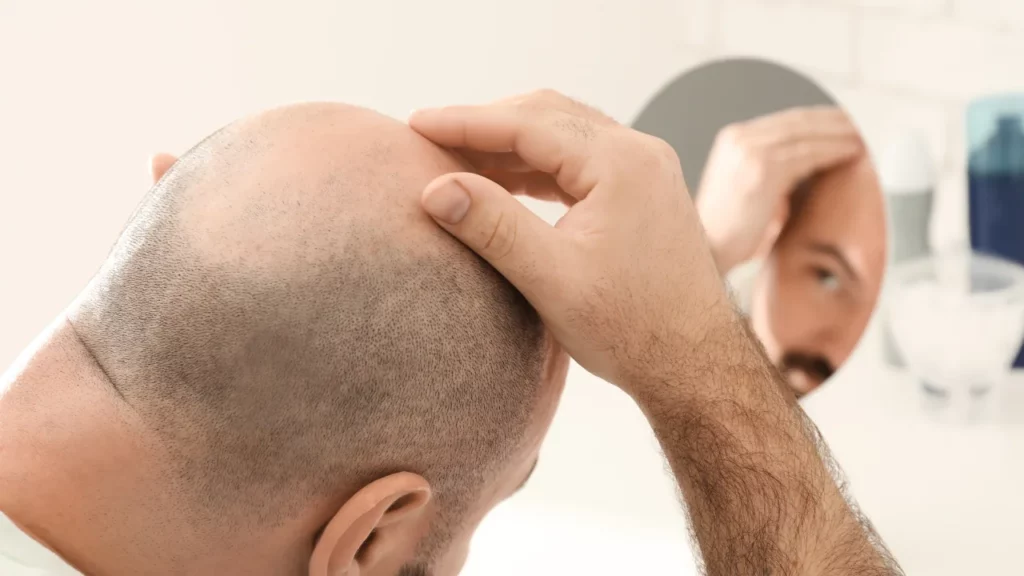
Is Transplanted Hair Falling Out After 2 Years Normal?
Transplanted hair falling out after 2 years is not a normal situation. There may be an abnormal progression in the hair transplantation treatment. If hair transplantation treatment proceeds correctly, the patient can have healthy and natural-looking hair within 1 year.
If there is a problem of transplanted hair falling out after 2 years, the patient should be examined. Hormonal factors and medical problems should be analyzed. The patient should consult the physician for a comprehensive evaluation of the situation.
Factors That Affect The Lifespan of A Hair Transplant
There are different factors that affect the lifespan of a hair transplant. Many patients can remain happy with their transplanted hair for more than 10 years. However, some patients begin to ask questions such as “Does transplanted hair fall out?” shortly after the treatment.
- Age: One of the most important factors affecting the lifespan of hair transplantation treatment was age. Much better results can be achieved in younger patients. Even if hair growth continues for a long time in older patients, the failure rate is high.
- Family history: Did you know this? A family’s genetic history of hair loss can affect future family members. Even if hair transplant is a long-lasting solution, a history of aggressive hair loss may negatively affect the treatment.
- Hair type: The patient’s hair type has a significant impact on the lifespan of the hair transplant. In general, hair transplant can be used for life and can be done again. However, transplanted hair lasts much longer in people with curly hair.
- Lifestyle: The better your lifestyle, the longer the life of the transplanted hair. After hair loss, your likelihood of encountering a hair transplant decreases. If you leave bad eating habits aside, you will have hair that will accompany you for life.
- Hair loss: Hair loss after hair transplant is a natural part of the process called shock loss. However, it is not normal to experience advanced hair transplant shedding. Additional steps may need to be taken to improve treatment.
The longevity of hair transplant treatment depends on many different factors. If a person uses medications for certain diseases, it should not be forgotten that those medications may affect the treatment. It is important for the doctor to make accurate evaluations.
How Long Do Hair Plugs Last?
“Hair plugs” or “hair implants” are not considered as hair transplants. They are added in place of dead hair follicles. It may be more accurate to see them as permanent wigs. They are the ideal solution for those who do not want to have a hair transplant.
Hair plugs may seem like a more advantageous option at first. However, it should be known that the hair transplant procedure is not a one-time procedure and lasts longer than hair plugs. If hair transplantation fails, re-planning can be done with a suitable donor area.
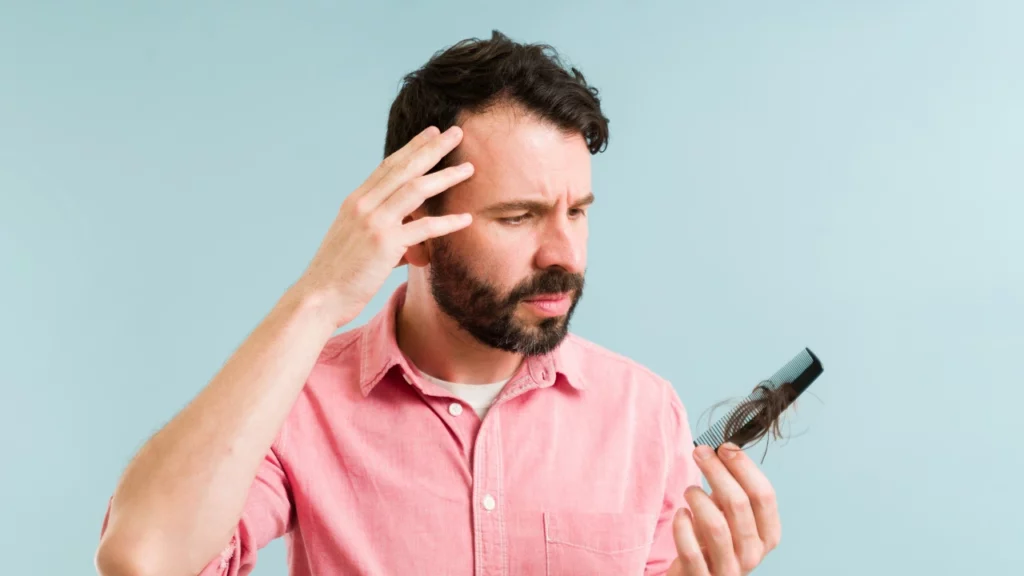
Shedding After Hair Transplant: A Normal Phase
Shedding after hair transplant is one of the most common conditions seen after the treatment. There is a period after treatment called resting. The resting period is the phase where the most hair loss occurs. However, patients generally see hair loss as a problem.
It is normal to experience hair loss for up to 12 weeks after hair transplant treatment. What is not normal is encountering no shedding after hair transplant. If you have any problems with your treatment, the first thing you should do is consult your health provider.
How Long Does Hair Shedding Phase Last?
Hair loss after hair transplant may last up to 12 weeks during the shock loss phase. If shedding continues after 12 weeks, there may be a specific problem. Your doctor should find the source of the hair loss after hair transplant problem through an examination.
Shedding after hair transplant begins 1-2 weeks after the treatment. As a reaction of the body, the transplanted hair or the surrounding hair are shed. Hair loss after hair transplant is a normal process for the emergence of new and natural hair.
Is No Shedding After Hair Transplant Normal?
Even though hair loss after hair transplant is a normal situation, it does not occur in all patients. Patients who do not experience hair loss need to be more patient than others. Because different stages may be required for hair to grow and develop.
Hair growth after hair transplantation is not something that will happen immediately. It is important for patients to wait right time. Even if there are no traces of the hair shedding phase, the hair grows healthily. You may first encounter thin hair and then thicker hair.
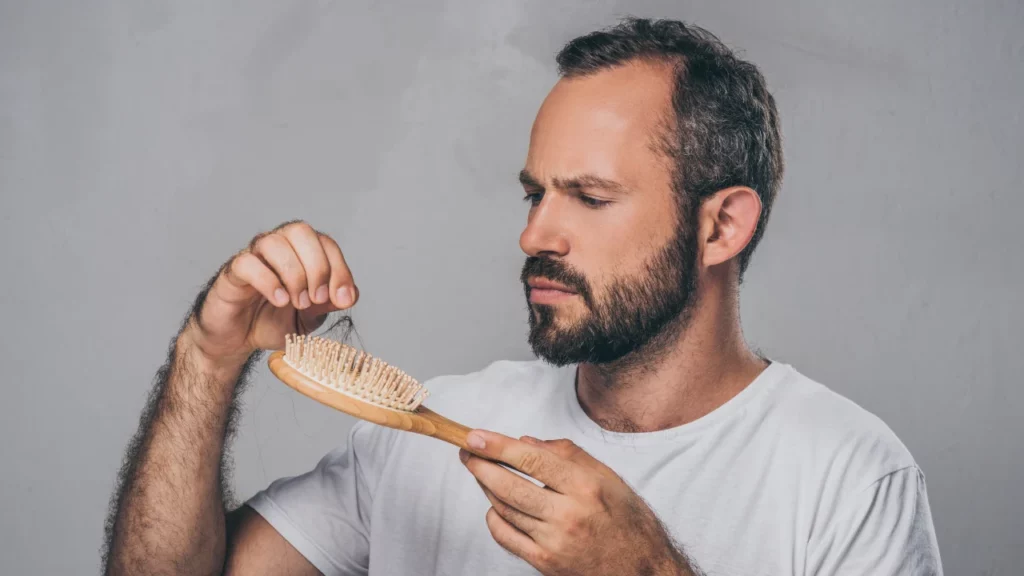
What To Do During Hair Shedding Phase?
First of all, you need to accept that hair loss after hair transplant is a normal process. If you want your hair to regrow in a healthy way, you should pay attention to some care instructions. There are some steps that can help you in the hair transplant shedding phase.
- Don’t touch: You should avoid touching your scalp as much as possible. Your scalp will be very sensitive after the treatment. Even if you se some shedding, you should not touch it. At the same time, you need to protect your head from impacts.
- Use medication: Even if the transplanted hair is falling out, you should continue to use the medications prescribed. Hair loss after hair transplant may be a side effect of certain medications. If you have any doubts, consult your doctor immediately.
- Follow procedures: Even if the transplanted hair is falling out, you should continue to follow the washing and care procedures specified by your doctor. You should be extremely gentle when drying your hair and try to avoid any redness.
- Avoid stress: Stress is literally a big problem in any health condition. You should completely avoid stress until the hair shedding period is over. You can do yourself a big favor by staying away from strenuous activities.
- Be patient: Hair loss after hair transplant is a normal situation. Perhaps what is not normal is to encounter no shedding after hair transplant. Hair loss may take up to 10-12 weeks. You should continue to protect your health throughout this process.
To get through the hair shedding phase without any problems, you need to have a healthy lifestyle. A healthy lifestyle promotes hair growth in the best possible way. You can support your hair health by eating a balanced diet, avoiding alcohol and not smoking.

